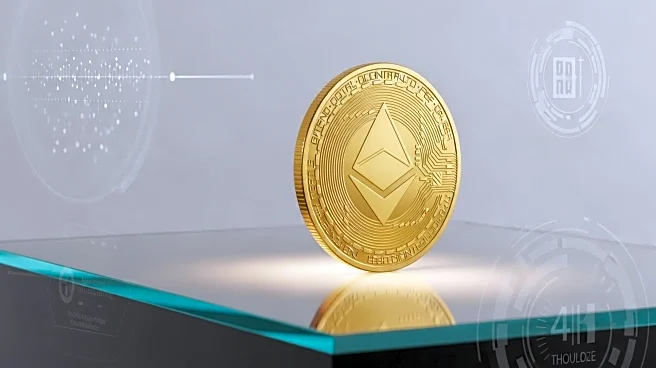What's Happening?
President Donald Trump and his family have launched a new venture through Trump Media, involving a partnership with Crypto.com. This initiative is described as a complex cryptocurrency scheme, where a social media company is raising funds to go public by purchasing a mid-tier cryptocurrency. Investors are encouraged to provide cash for this purpose, despite the option to buy the cryptocurrency directly. The venture has raised concerns about potential conflicts of interest, as President Trump has pardoned individuals involved in cryptocurrency exchanges and formed business partnerships with those investing in his meme coin, $TRUMP.
Why It's Important?
The involvement of President Trump in cryptocurrency ventures raises significant ethical and democratic concerns. Critics argue that the ability to engage in multimillion-dollar deals with the President could lead to corruption, as donors may gain access to favorable treatment and influence over presidential decisions. This situation highlights the potential for conflicts of interest when a sitting president is involved in private business dealings, particularly in the volatile cryptocurrency market. The venture could impact public trust in the presidency and raise questions about the integrity of democratic processes.
What's Next?
As President Trump continues to monetize his presidency through ventures like Trump Media, it remains to be seen how regulatory bodies and political leaders will respond. The ongoing involvement in cryptocurrency could lead to increased scrutiny and calls for stricter regulations to prevent conflicts of interest. Stakeholders, including political leaders and civil society groups, may push for transparency and accountability in presidential business dealings to safeguard democratic values.
Beyond the Headlines
The broader implications of President Trump's cryptocurrency ventures extend to the cultural and ethical dimensions of leadership. The blending of personal business interests with presidential duties challenges traditional norms and raises questions about the role of ethics in governance. This development could influence future leaders and the expectations of presidential conduct, potentially reshaping the landscape of political accountability.









